‘I was terrified’: Emma Eckersley’s shocking breast cancer discovery
A few years ago, a simple symptom was dismissed by a doctor. Now mum-of-two Emma Eckersley is fighting for her life. Here she tells her story.
Lifestyle
Don't miss out on the headlines from Lifestyle. Followed categories will be added to My News.
There is a cruel reason Emma Eckersley could not breastfeed her second child like she could her first.
The mother-of-two, who built a career on being a lactation consultant, breastfed her son Flynn well into toddlerhood and had plans to do the same for her daughter Audrey.
But when she discovered a lump on the side of her right breast and it turned out to be breast cancer, there was nothing Emma could do.
“That was just one of the things that was taken away,” the now 48-year-old said.
Emma has stage four metastasised breast cancer and is sharing her story as part of The Advertiser’s Too Young for Cancercampaign, aimed at raising awareness of the growing number of young people being diagnosed with cancer in Australia and around the world.
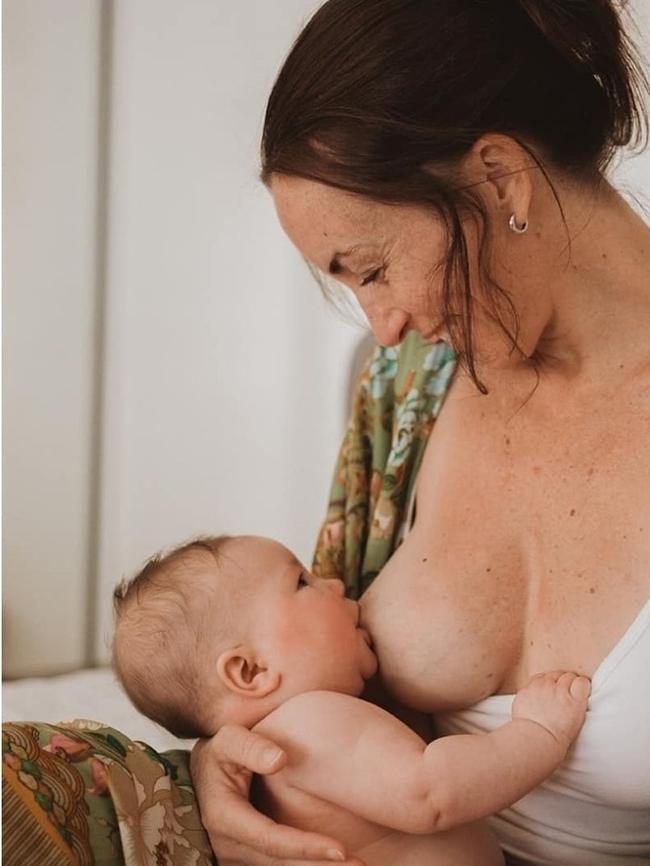
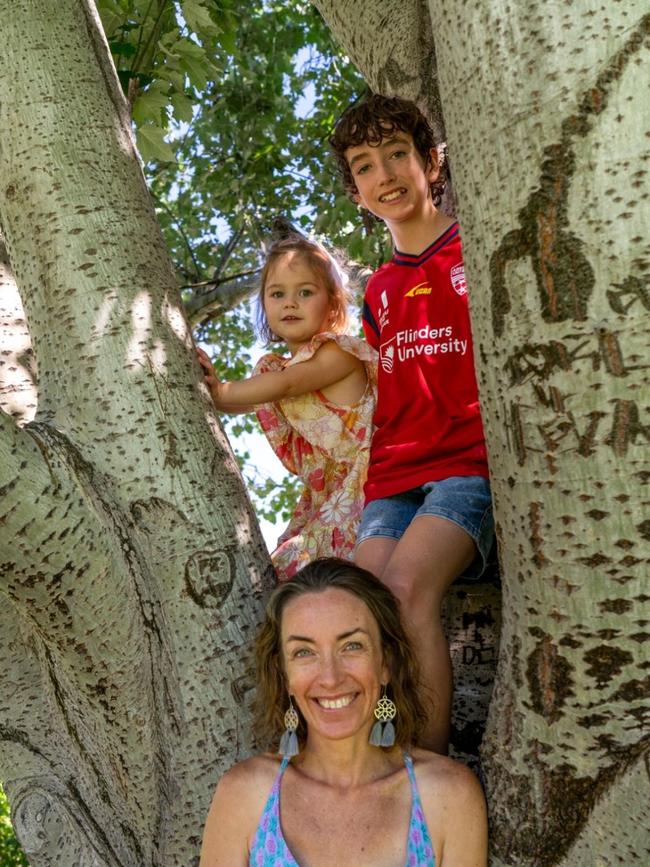
For the mum from Glenelg in Adelaide, she first discovered a lump in her right breast after heartbreakingly suffering a miscarriage in 2020.
Amid her grief she immediately brought the rope-like lump to the attention of her GP who believed it was a symptom of her miscarriage.
“He leant over from his chair and felt along the side of my breast and felt the lump,” Emma said.
She said her trusted doctor told her it would settle down in a couple weeks and there was no need for further testing.
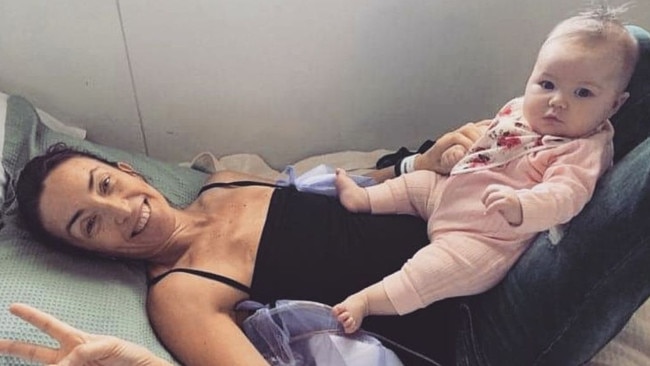
The following year, when Emma was 36 weeks pregnant with her second child, she showed her breast lump to another GP, after her original doctor moved interstate, who decided it was best to test the lump.
The new GP said while it was unlikely to be cancer, she wouldn’t know unless it was tested.
Following Audrey’s birth Emma underwent an ultrasound and the next day received a call from a doctor.
“She said she was really sorry to say but I’d definitely tested positive for breast cancer,” Emma said.
“I went into a complete state of shock and then I guess I just went into some form of damage control to try and cope with it the best you can.
“I tried to convince myself that this was going to be an early stage breast cancer, that I’ll probably just have a lump removed, we would have caught it early enough and I will be able to just simply go on with my life.”
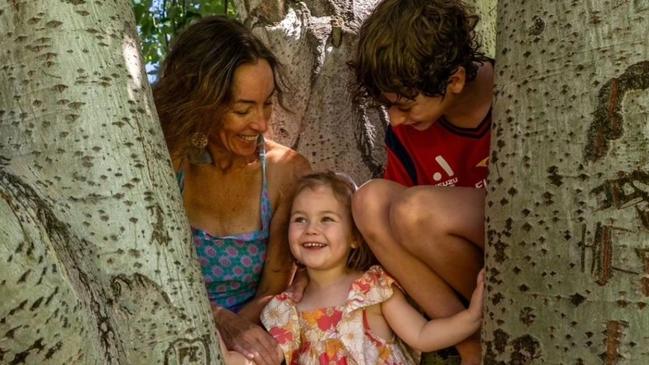
Tests revealed cancer was throughout Emma’s right breast and lymph nodes.
“For context I am exclusively breastfeeding my 10 week old baby at this time,” she said.
“They told me in the appointment that I would have to stop breastfeeding immediately in order to undergo treatment and for me that was really significant.
“I’m very respectful of any woman’s choice on how they feed their baby, but for me I had made the decision to breastfeed and that was really important to me and a really important part of my relationship with her.”
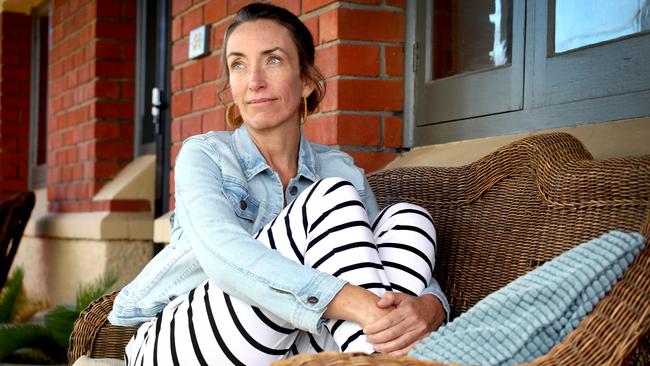
Emma elected to have a double mastectomy.
“I was terrified that the breast cancer may return in the other breast,” she said.
Within 30 days of the diagnosis, she was admitted to Flinders Medical Centre and had the surgery, including a lymph node clearance.
Following the surgery, Emma continued with five weeks of daily radiation and afterwards underwent hormone suppression treatment which came with intense side effects including extreme brain fog and uncontrollable vaginal bleeding.
“Not for a second did I think that cancer would be in my story at all,” Emma said.
Emma was told she was “cancer-free” following her surgery in June 2021.
“You just live with the possibility of recurrence and just hope it doesn’t happen but it’s always in the back of your mind that it’s a possibility,” she said.
And in October 2023 she discovered it had. It was stage four.
“The first thing that comes to mind is that I want to be here to see my children grow up. I want them to have a mother walking alongside them for their childhood and their early adulthood to be there for them, to guide them, to provide whatever it is they need,” she said.
“To think that it’s a possibility that I may not be able to is the most devastating aspect of this diagnosis.”
Emma’s 11-year-old son Flynn is “very aware” of what is happening with his mum where three-year-old Audrey knows mum has cancer and her back gets sore.
“You just say it as simply as you can,” Emma said.
“You just provide as much opportunity as they possibly need for questions and to be comforted.”
Emma is one of a rising number of under 50s being diagnosed with cancer, with doctors labelling it a worrying “epidemic”.
And it’s only the tip of the iceberg in a concerning health trend set to accelerate in the next few years.
By 2030, one recent study published in BMJ Oncology estimated the number of these early-onset cancer diagnoses could increase by roughly 30 per cent worldwide.
And the number of people who die from their conditions could rise by about 20 per cent.
In recent months, high profile cases have shone a light on young people getting cancer.
In March, Catherine, Princess of Wales, shared her own diagnosis at only 42 years old. Hollywood actor Olivia Munn, 43, is currently battling cancer and sharing her heartbreaking journey on social media.
And in February, Bollywood actor Poonam Pandey died of cervical cancer at just 32.
What’s causing this? Recent research Taussig Cancer Institute in the US suggests our cells are ageing faster than ever due to a rise in stressful sedentary lifestyles and poor food choices. But really, the rise has doctors baffled and in March it was announced that Government-funded researchers at top universities in the US and UK will receive up to $25million over five years to investigate.
After being dismissed by her GP, Emma now wants general practitioners to take steps to tackle the rise in young people getting cancer.
“When a woman presents with a breast lump … do what’s called a triple check,” she said.
“That’s a physical examination of the symptoms at the time … then a referral to an ultrasound and/or mammogram and if there is anything in those tests, then a biopsy of the cells in the lump.
“Breast cancer can happen at any age, it’s not an elderly disease and it absolutely can happen around pregnancy and breastfeeding.
“If you do have any symptoms please go and see your doctor and please insist that they’re investigated further regardless of the response you get from your GP.”
According to Cancer Council, 3857 young Australians were diagnosed with breast cancer last year.
CEO of the Breast Cancer Network Australia Kirsten Pilatti said it is important to feel comfortable with your treating team and have a sense of being well cared for.
“You can also ask your GP for a referral to someone suitable for a second opinion,” she said.
If you would like more information or support about living with cancer, treatment or diagnosis, please contact the Cancer Council on 13 11 20.
More Coverage
Originally published as ‘I was terrified’: Emma Eckersley’s shocking breast cancer discovery





